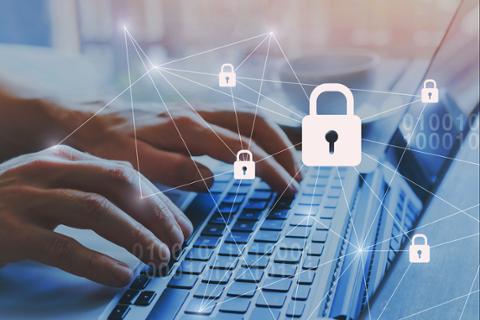
If you’re a cybersecurity analyst (or aspire to become one), your skillset is in demand at thousands of companies across the country. According to Cyber Seek, there are roughly 428,000 open cybersecurity career positions across the United States. The White House recently highlighted cybersecurity jobs as one of the key foundations of the Biden administration’s proposed American Jobs Plan.
But companies won’t hire just anyone who says they can analyze a system for vulnerabilities and threats. Given the pay and opportunities, many cybersecurity analyst openings come with stiff competition. If you want to land this job, you’ll need to stand out from the crowd and show how your experience and skills make you a must-have talent. In addition to the technical aspect of the job, soft skills are key, as you’ll need to communicate issues to multiple stakeholders throughout an organization.
We spoke with hiring managers to find out exactly what companies want in a cybersecurity analyst, and how you can distinguish yourself from the competition and earn a job offer.
Summary
What is a Cybersecurity Analyst?
A cybersecurity analyst is tasked with a variety of duties, most notably monitoring networks for security breaches. If a breach occurs, they must investigate. In addition, they build out and maintain protective infrastructure such as firewalls and data encryption programs to safeguard essential data. On a regular basis, they check for infrastructure vulnerabilities.
How much are Cybersecurity Analysts Paid?
According to Cyber Seek, cybersecurity analyst is a mid-level cybersecurity position with room for advancement into more senior-level positions. The average salary is $107,500.
Dice’s latest Tech Salary Report, meanwhile, puts the average cybersecurity analyst salary at $96,379, having declined 5.7 percent between 2021 and 2022. Don’t read too much into that decline; as roles become more popular and more people adopt the skills necessary for the job, it eases overall demand, which can lead salaries to dip a bit.
Common Cybersecurity Analyst Interview Questions
All interviewers and hiring managers will want cybersecurity analyst candidates to demonstrate they grasp the core technical aspects of the job. In light of that, some of the questions you can expect during the interview process include:
- How do you define a threat or vulnerability on a network?
- What is a DDoS attack? How can you minimize it quickly?
- What is a CIA triad?
- Explain the importance is DNS monitoring.
- Can you explain SSL to me?
- If you needed to encrypt and compress data for transmission, which would you do first and why?
Though these are straightforward questions, Wendy Liu, Partner and Managing Director at IT employment solutions provider Vaco, told Dice it’s smart to personalize your answer. “Successful interviewees are prepared to provide thorough real-life examples of recent projects where they have solved similar challenges as the company they are interviewing with is currently experiencing,” she said. “Hiring managers are not as interested in hearing the collaborative effort of an entire team and rather, they would like to hear about the interviewee’s personal contributions.”
Derek St. Onge, Head of Talent at Stytch, said candidates should be “prepared to talk about how they collaborated with different stakeholders” and be able to speak to “past projects in terms of conception, execution, delivery” for all involved. Though your experience and expertise matter, companies will want to know you understand the whole process of analyzing vulnerabilities, including all stakeholder roles.
Know the Company
Experts advise doing a bit of digging to discover your prospective employer’s technology and platforms. Corporate blog posts or online forum comments can help you understand how the company’s stack works.
“Do research on the specifics of the company. This doesn’t mean just figure out the culture/value; if possible, figure out how they develop,” David Galownia, CEO of IT services company Slingshot, told Dice. “What’s their process: Agile, Waterfall? What do timelines look like for a project? What’s the team structure? That way, you can ensure that you mesh nicely with their development process, and can talk to that in the interview.”
James Foster, Client Partner of Cybersecurity at RP International, suggested a well-rounded approach to cybersecurity can help you during the interview if you don’t have experience with the company’s tools: “Scripting, hacking, networking, in-depth knowledge of all types of OS, firewalls, IPS, encryption, anti-virus and the plethora of other tools and controls needed to be a cybersecurity [analyst] will always be ‘tested’ in terms of use cases, processes, and best-practice methodologies, but this will be done most commonly through dialogue as opposed to hands on technical role play.”
Preparing for the Interview
St. Onge says these are the five qualities he looks for in a cybersecurity analyst candidate:
- Experience at a company dealing with highly sensitive data.
- Strong project management skills.
- Strong experience with security tooling.
- Ability to script or write code.
- Experience at a highly regarded security firm.
Security analysts often work like consultants, even as full-time employees within a company. Consulting experience is good training for this. Daniela Sawyer, Founder and Business Development Strategist at FindPeopleFast, said, “two things candidates treat with leniency, but interviewers don't, are aptitude and reasoning.”
In addition, she added, “some skills not related to technology are very much needed in IT companies, such as communication skills. Decision-making and problem-solving skills are also soft skills that are in demand. Though they are non-technical, they are essential to companies.”
Current issues are important. Companies are concerned with what’s next; describing how you solved a threat or problem six months ago should be framed as a prescriptive way for how you would treat similar threats now. Moreover, addressing how you would use your knowledge and skillset to thwart existing and emerging threats lets the company know you’re keenly aware of the current threat landscape.
Questions to Ask in Your Interview
If your first stop on the cybersecurity analyst interview train is a recruiter, skip the technical questions. A recruiter is often tasked with gauging your experience and comfort level with a skill. Be honest with your answers; ask how you can best prepare for the next round of interviews. You should also use this opportunity to ask about company culture or other items you’re curious about (like remote working opportunities).
Lui suggested that candidates ask what success looks like in the role for the first 30/60/90 days. Consider asking whether the company funds certification training; if it does, that’s potentially beneficial to both you and the company in the long run.
Foster advises candidates to “probe the current security posture of the business, the investment in security coming from the board, and the size of the security team. Do they have an in-house SOC or do they outsource it—or a combination of the two? These elements will provide a strong indication of whether you’re joining a business that takes security seriously and will tell the interviewer you take it seriously, too.”
Will Certifications Help?
Certifications that can boost a cybersecurity analyst career include:
- Certified Information Systems Security Professional (CISSP)
- Certified Information Systems Auditor (CISA)
- Certified Information Privacy Professional (CIPP)
- SANS/GIAC Certification
- CompTIA Security+
- Certified Information Security Manager (CISM)
- GIAC Certified Incident Handler (GCIH)
- GIAC Security Essentials Certification
Many cybersecurity positions explicitly request certifications, and possessing the certs can help you stand out in a crowded field of applicants. However, the demand for cybersecurity professionals is intense enough that some employers are potentially willing to overlook the certification perquisite if you can demonstrate that you have the skills and experience necessary to carry out the complexities of the job.
During the job interview process, be prepared to discuss your certifications (or lack thereof). Show how you’ve used the skills backstopped by those certifications to help your previous employers achieve their goals.
Conclusion
Cybersecurity analysts who have strong project management and cybersecurity skills, the ability to write code, and experience with cybersecurity tools can often find employers who want to hire them. However, it’s important to head into any job interview prepared to discuss your skills and background in a clear, concise, and helpful manner.
As with so many other tech jobs, the key is preparation. Rehearse stories that show how you’ve helped protect previous employers. If you’re facing a technical interview, go through as many practice problems as possible. And always remember: the demand is high for cybersecurity analysts at the moment, which should yield plenty of opportunities.


